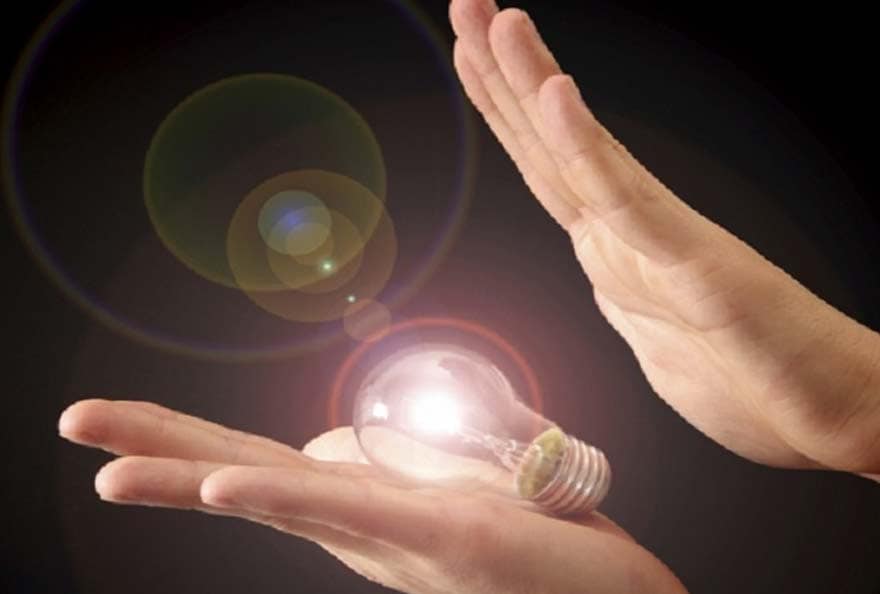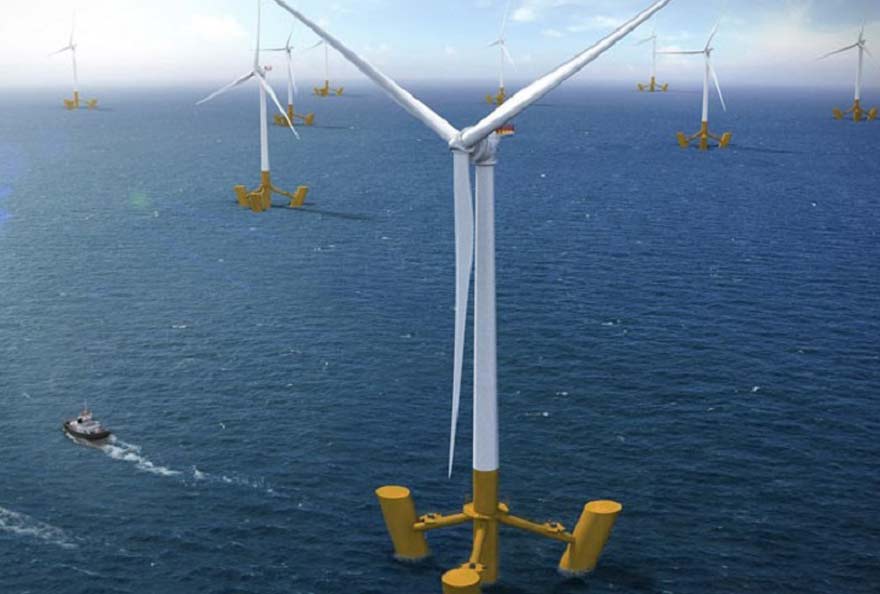« Le futur de l’énergie sera numérique et connecté », déclarait le cabinet KPMG dans un récent rapport. Et c’est sans aucun doute le secteur électrique qui subira les plus importantes transformations. Dans ce secteur, la numérisation renvoie à la généralisation des technologies de l’information et de la communication (TIC) dans l’ensemble de la chaîne de production : réseaux et compteurs intelligents, solutions de cloud computing (qui concernent des applications mobiles au service de la gestion de l’énergie), usage des TIC pour le fonctionnement des centrales électriques et la gestion de la charge sur le réseau.
GEM et le ZEW (le Centre de recherche économique européenne) réalisent chaque semestre une enquête auprès d’experts du marché de l’énergie opérant dans l’industrie, la science, et l’administration publique en France et en Allemagne. Voici les grandes lignes du dernier baromètre « été 2016 » portant sur la transformation numérique dans le secteur de l’énergie.
En ce qui concerne la France, 58 % des experts interrogés estiment que le niveau d’avancement de la transformation numérique du secteur de l’électricité est proche de celui des autres pays occidentaux. Nos voisins allemands estiment, quant à eux, que le niveau de numérisation en Allemagne est adéquat, voire élevé. En revanche, la majorité des experts français et allemands s’accorde pour dire que la vitesse de cette transformation est trop lente.
Des technologies économiquement viables ?
L’enquête révèle que plusieurs facteurs entravent la numérisation du secteur de l’électricité. Le principal obstacle concerne un rapport coût/bénéfice défavorable.
Prenons le smart grid par exemple, plusieurs déploiements ont été réalisés autour de projets pilotes tels qu’Issy Grid, Nice Grid ou Greenlys à Lyon et Grenoble, entre autres.
Bien que l’état de l’art des technologies ne soit pas remis en cause, celles-ci sont évaluées sur des projets de petite envergure et leur maturité pour un déploiement à plus grande échelle est souvent remise en cause. La Commission de régulation de l’énergie, chargée de veiller au bon fonctionnement des marchés de l’électricité et du gaz en France, suggère d’ailleurs d’organiser un déploiement progressif afin d’avoir une meilleure maîtrise des coûts et de pouvoir tirer profit des effets d’apprentissage.
En France, le cadre réglementaire est pointé du doigt comme étant le deuxième obstacle le plus important à la numérisation dans le secteur de l’électricité. Ce résultat fait écho aux retours d’expérience de démonstrateurs qui soulèvent que le cadre réglementaire ne permet pas de monétiser les bénéfices apportés par ces technologies et de leur assurer une viabilité économique.

À cause des arrondis, la somme des données chiffrées pourrait ne pas atteindre 100 %. Baromètre de l’énergie (GEM, 2016)., Author provided
La cyber-menace inquiète
La cybersécurité est également considérée comme un verrou important. Les experts allemands considèrent d’ailleurs qu’en Allemagne, les cyber-menaces sont un facteur de blocage plus important que le cadre réglementaire. Les préoccupations relatives à la sécurité des données, et de la vie privée en particulier, ont été soulevées dans le sillage de la numérisation en cours dans l’économie.
Par exemple, 97 % des 500 premières entreprises américaines en terme de chiffre d’affaire ont reconnu avoir été victimes d’au moins un incident de type cyberattaque réussie. Dans le secteur de l’énergie, il est vrai que les réseaux électriques s’appuient depuis longtemps déjà sur les TIC pour transférer les données nécessaires à une bonne gestion des réseaux et ce grâce à des réseaux industriels souvent fermés.
Cependant, comme plus d’équipements deviennent interconnectés, s’appuyant souvent sur des technologies telles que le cloud computing ou Internet Protocol, l’ensemble du système devient plus vulnérable aux cyberattaques. On se rappelle notamment l’épisode ukrainien fin 2015 au cours duquel deux fournisseurs d’énergie ont été victimes de cyberattaques entraînant des pannes dans l’ouest du pays et plongeant quelques 700 000 personnes dans le noir.
Enfin les experts français ont soulevé deux autres facteurs bloquants. En premier, la nature centralisée, semi-monopolistique, du réseau qui diminue la volonté des firmes établies à embrasser le changement. Deuxièmement, des questions relatives à l’acceptation sociale ont également été mentionnées, notamment en ce qui concerne le déploiement de compteurs intelligents.
Comme dans d’autres pays, les préoccupations en France se rapportent au respect de l’intimité (anonymat des données et espionnage), ainsi qu’à la nocivité des rayonnements
Comment gérer la transformation ?
Compte tenu de l’importance du frein « cyber-sécurité » pour le passage au numérique dans le secteur de l’électricité, il est normal de s’interroger sur la manière de gérer la transformation numérique.
Doit-on mettre l’accent sur les aspects techniques et soutenir l’introduction des TIC dans le système électrique ou doit-on avant tout s’assurer de préserver la cybersécurité ?
En France, à l’heure actuelle, les experts sont partagés quant à la posture adoptée jusqu’ici. 21 % estiment que l’accent a plutôt été mis sur la numérisation et une part à peu près égale de 23 % pense qu’au contraire c’est la cybersécurité qui a été privilégiée.
La plus grande part des répondants (39 %) a répondu que l’industrie de l’électricité a suivi une approche équilibrée entre les aspects techniques de la numérisation et la préservation de la cybersécurité.
Pour l’Allemagne, seulement 16 % des répondants estiment que la cybersécurité a été privilégiée. 27 % pensent que l’accent était sur la numérisation et 26 % qu’une approche équilibrée est suivie.
Équilibrer l’offre et la demande
La transformation numérique, bien que porteuse de défis, est également source potentielle d’optimisation du système électrique.
Experts français et allemands s’accordent sur les domaines dans lesquels la transformation numérique produira le plus de gains d’efficacité. En tête, avec 21 % des experts français et 20 % des allemands, de meilleures prédictions pour la gestion de la charge sur le réseau.
Les opérateurs de réseaux doivent s’adapter à une production électrique de plus en plus décentralisée qui crée des défis pour équilibrer l’offre et la demande d’électricité et la numérisation est clairement perçue comme une des solutions.
16 % des experts français et 17 % des experts allemands pensent également qu’il sera possible de mieux répartir la production d’électricité. Des gains sont aussi attendus en ce qui concerne les procédures opérationnelles telles que la facturation pour 11 % des experts français et 16 % des experts allemands.
Le positionnement paradoxal du consommateur
La numérisation devrait également profiter aux consommateurs. Ainsi, 18 % des experts français et 19 % des experts allemands anticipent une meilleure flexibilité dans l’industrie parmi les régions bénéficiant de la numérisation.
En ce qui concerne les ménages cependant, moins de 10 % des experts français et 11 % des experts allemands pensent qu’ils bénéficieront d’une meilleure flexibilité. Ces résultats mettent en évidence un des paradoxes de la transformation numérique dans le secteur électrique. D’un côté le fait que les attentes des consommateurs finaux changent est souvent mentionné comme l’un des facteurs qui pousse à numériser le secteur.
En effet, certains demandent plus d’informations afin de pouvoir mieux contrôler leur consommation d’électricité et donc réduire leurs factures et leur impact environnemental. De plus, nombreux sont ceux qui produisent leur électricité et ils sont de plus en plus à s’orienter vers l’autoconsommation d’énergie, une tendance qui engendre de nouveaux besoins en termes de services énergétiques.
D’un autre côté, des doutes planent quant à la possibilité pour tous les consommateurs de tirer pleinement profit de l’introduction des technologies du numérique.
Des bénéfices intersectoriels encore isolés
Enfin, on aurait pu s’attendre à ce que les experts pointent des bénéfices en lien avec la connexion de la chaîne de production de l’électricité avec d’autres secteurs. Pourtant il n’en est rien et seuls 9 % des experts français et 12 % des allemands anticipent des bénéfices.
L’avènement de nouvelles technologies comme les véhicules électriques, le power to gas (par exemple, la conversion de l’électricité en hydrogène), ou la méthanisation, connecte le secteur de l’électricité avec d’autres secteurs comme le gaz, le transport, et la gestion des déchets.
Cela appelle à une gestion numérique intersectorielle plus intégrée. Le fait que ces technologies soient pour beaucoup immatures et encore peu répandues pourrait expliquer que peu d’experts anticipent des bénéfices à ce niveau.
Anne-Lorène Vernay, Chargée de cours en stratégie, Grenoble École de Management (GEM), Joachim Schleich, Professor of Energy Economics, Grenoble École de Management (GEM) et Laurent Javaudin, Chargé de cours en management, Grenoble École de Management (GEM)
La version originale de cet article a été publiée sur The Conversation.












